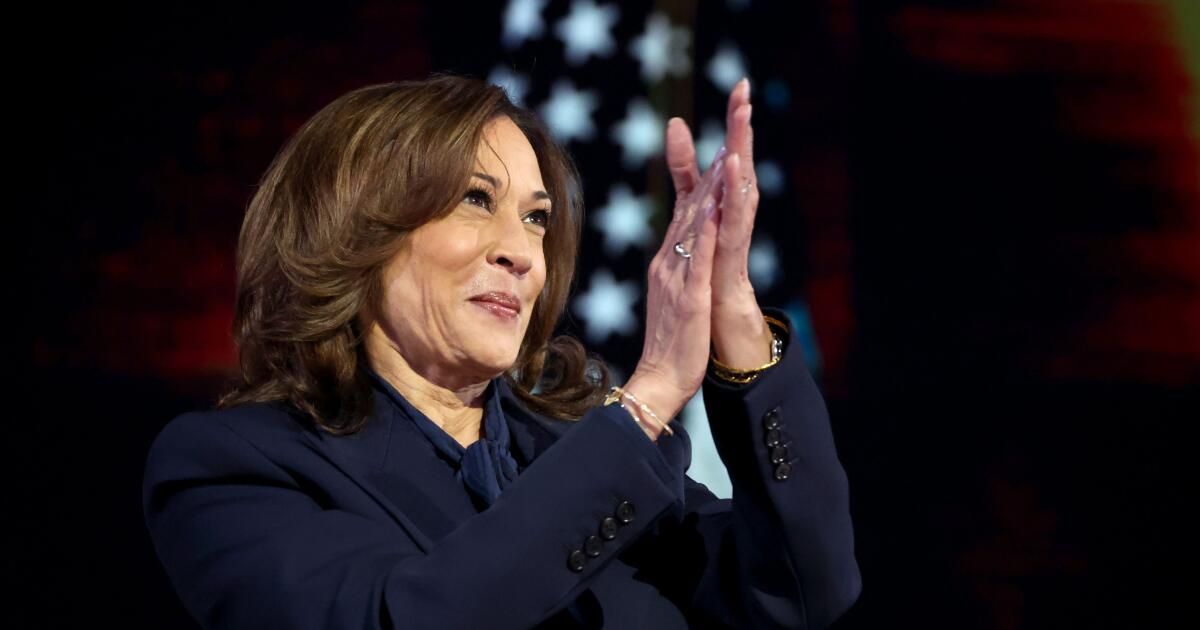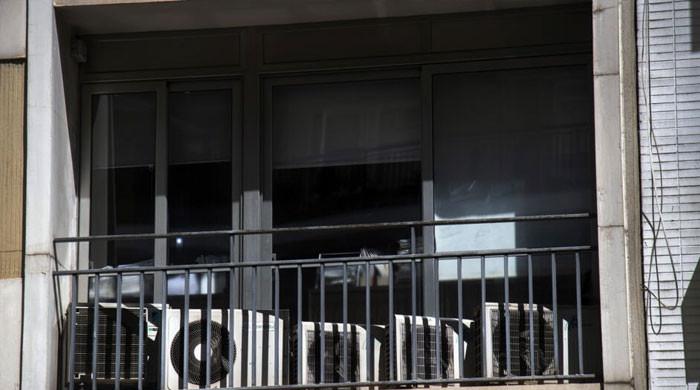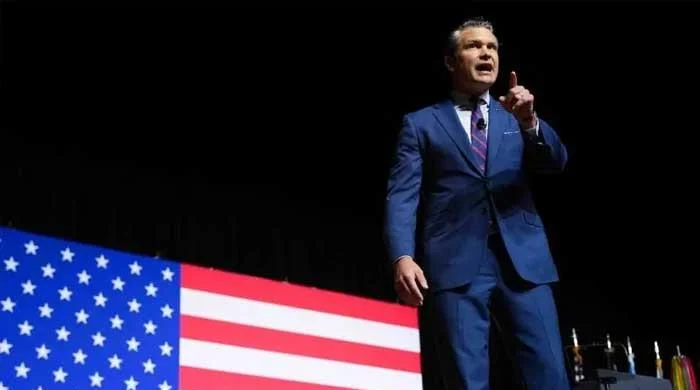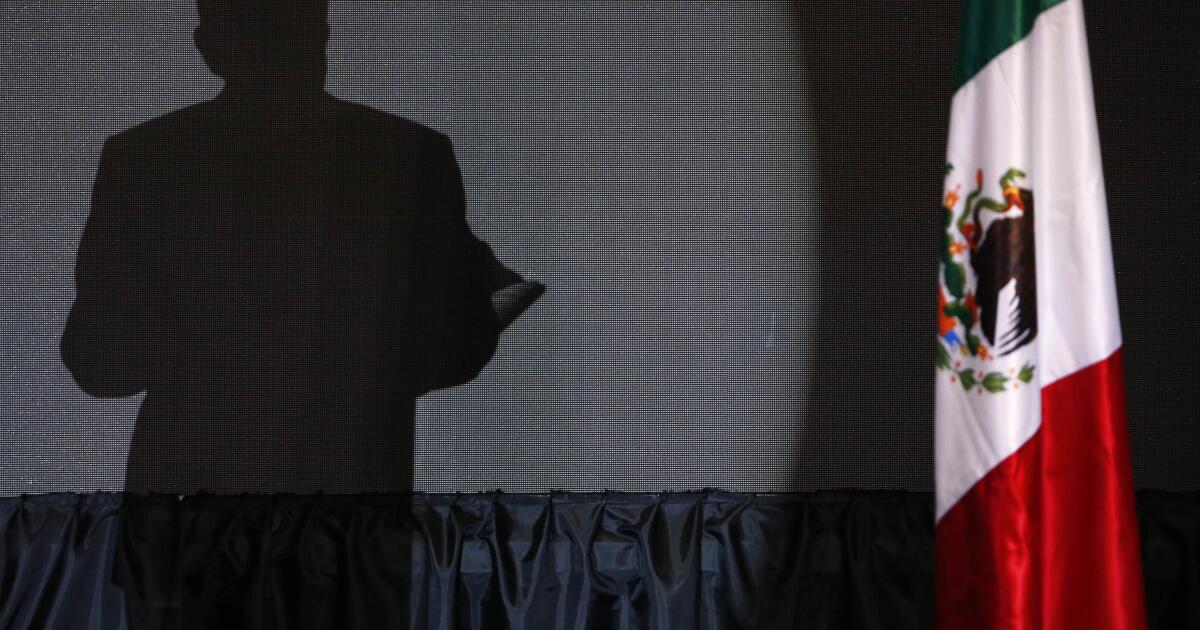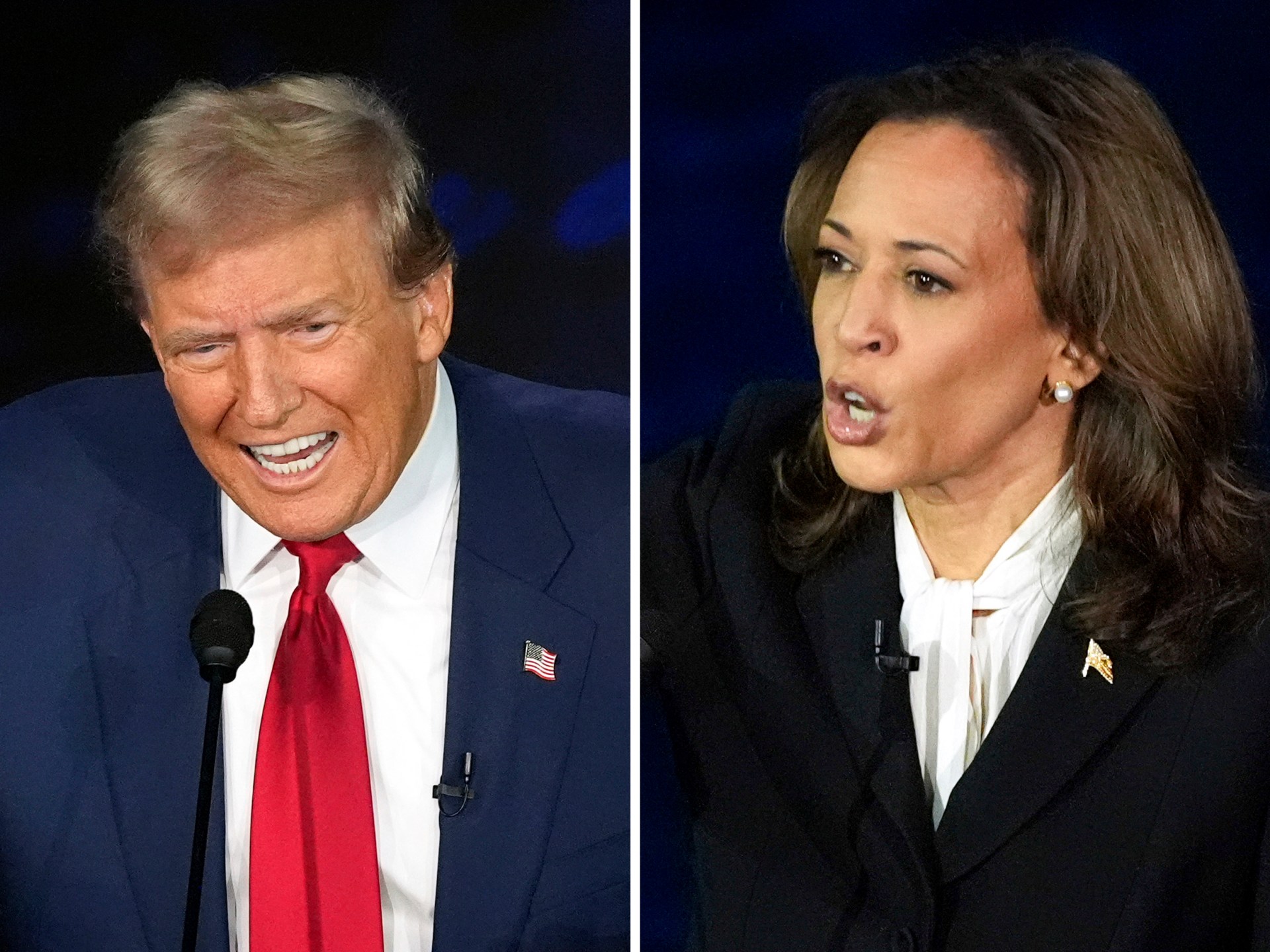On the fourth and final night of the Democratic National Convention, “Scandal” actor Kerry Washington and Kamala Harris’s great-nieces had one job to do: teach people how to say the vice president’s name.
“I’ve noticed that there are people who have a hard time, or pretend to have a hard time, getting the name of our future president right,” Washington told the roaring crowd at Chicago’s United Center. “Listen, the confusion is understandable, the disrespect is not. So tonight we’re going to help everyone get it right.”
“First you say ‘comma,’ like a comma in a sentence,” Amara Ajagu said.
“Then you say 'La'”, like [singing] “La, la, la, la, la,” said Leela Ajagu. Then the three of them said, “Put it all together and it’s… Kamala!”
Adorable and instructive? Absolutely. And also brave (pronounced “feer-less”). How could something so sweet have such an impact? Because the moment unfolded at a first-of-its-kind party convention, where the candidate’s mixed-race, immigrant experience was presented as a superpower rather than an obstacle.
Actor Kerry Washington with Vice President Kamala Harris's great-nieces Leela Ajagu, left, and Amara Ajagu at the Democratic National Convention.
(Robert Gauthier/Los Angeles Times)
The DNC seized on Harris’s experience — the biracial daughter of an Indian mother and a Jamaican father, both immigrants — and took every opportunity to highlight her exceptional journey to the top of the Democratic ticket. Tapping into the country’s changing demographics was a bold and necessary campaign move, and runs counter to the negative themes about immigrants in 21st-century politics. Now, her background is a point of connection for many Americans.
Having one or two parents with accents from continents and countries outside Europe is not a unique experience in 2024, but it is unique to hear it in such detail from a presidential candidate. Her campaign wisely took advantage of the speech, playing on the offensive against the predictably xenophobic rhetoric of the right.
With just a month to get organized after President Biden dropped out of the race, the DNC found a way to present Harris’s “otherness” as a selling point rather than a drawback, betting that most of the electorate will find her story appealing and, for some, familiar, even comforting.
Harris began her acceptance speech Thursday night by telling the country who she is through her parents’ journey: “My mother was 19 when she crossed the world alone, traveling from India to California with the unwavering dream of being the scientist who would cure breast cancer.”
“When she finished school,” Harris added, “she was supposed to return home to get married in a traditional way. But as fate would have it, she met my father, Donald Harris, a student from Jamaica. They fell in love and got married, and that act of self-determination gave birth to my sister, Maya, and me.”
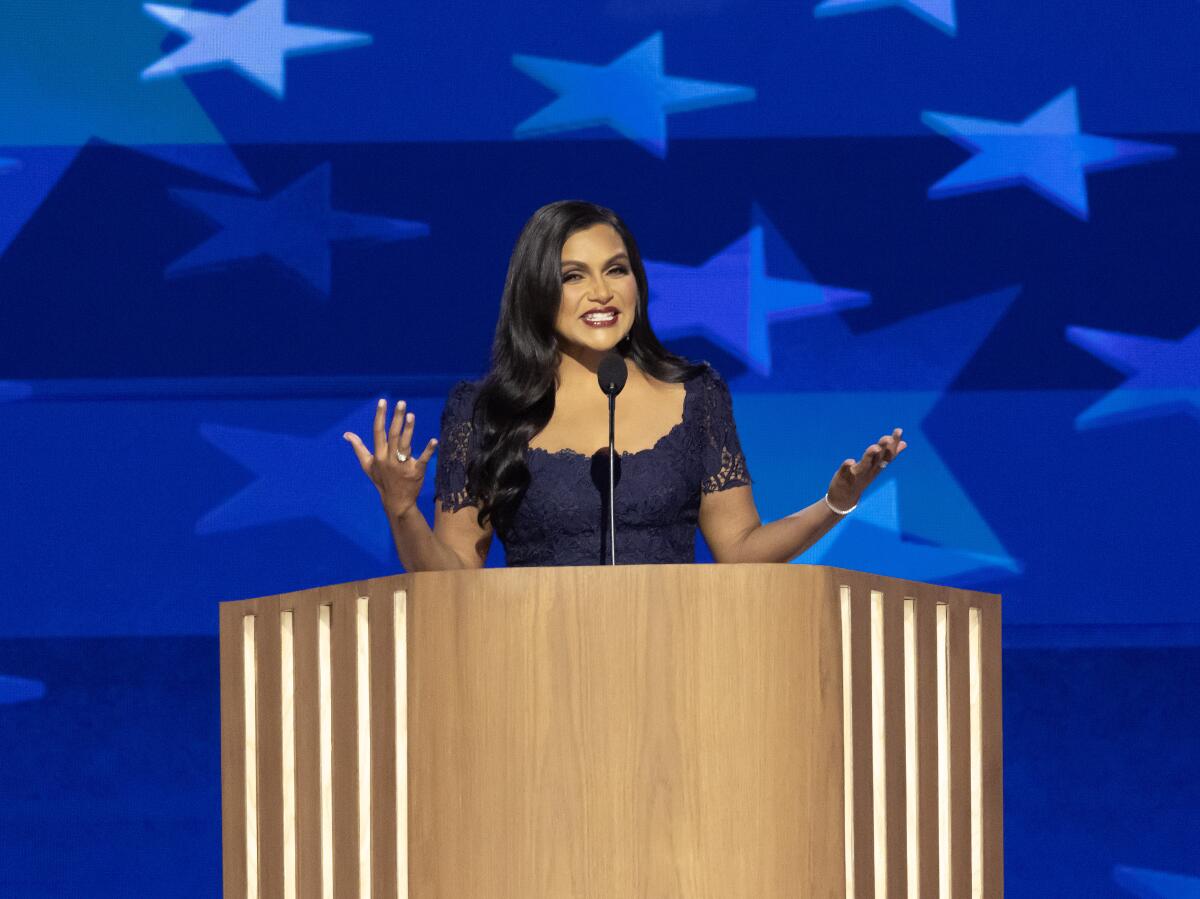
Actress Mindy Kaling hosts a segment of the Democratic National Convention.
(Myung J. Chun/Los Angeles Times)
The DNC’s celebration of his immigrant heritage stood in stark contrast to last month’s RNC, where the crowd held up signs reading “MASS DEPORTATION NOW!” and speaker after speaker warned that immigrants were a plague. The divisive tactic has been a successful rallying point for Trump, who rose from reality TV host to GOP leader thanks in large part to the appeal of his bigoted bluster.
In 2008, Trump and others used Barack Obama’s otherness as a weapon against him, using the young senator from Illinois’ background to cast doubt on his character, his faith, and his citizenship status. Obama’s father was black and from Kenya, and his mother was a white girl from the Midwest. Obama “got high” and rarely talked nonsense, but he also rarely talked about his father. The childhood he talked about was that of his single mother and grandmother, both from Kansas, an unimpeachable place for those who wanted to paint him as an outsider.
Trump has tried the same tactic with Harris, purposely mispronouncing her name, “Ka-MAH-la.” He posted a photo of her in an Indian sari as part of his ongoing attack on her biracial identity. Last month, during an appearance at the National Association of Black Journalists’ annual convention, he said, “I didn’t know she was black until a few years ago when she became black, and now she wants to be known as black. So I don’t know. Is she Indian? Or is she black?”
But if press polls are any indication, Trump’s old playbook isn’t as effective as it once was. Or maybe that’s because his rhetoric is becoming increasingly outdated every year. According to the Census Bureau, 42 million Americans, or 13 percent of the country, identify as multiracial.
And the foreign-born population in the United States is about 46.2 million, or 13.9% of the total population. Now, if you add in the second-generation children of those immigrants, who make up about 10% of the adult population (not even counting the large number of first-generation children under 18), you have a lot of people who have more in common with Harris than with her opponent.
Even before Harris took the stage to deliver her speech, Democratic National Convention viewers were already prepared. They had heard South Asian actress Mindy Kaling (“The Office”) talk about her experience cooking Indian dishes with Kamala, they had heard multiple speakers recount the bravery and determination of immigrants like Harris’s parents, and they had witnessed firsthand the diversity of the vice president’s blended family, many of whom attended the convention.
“My mother was a brilliant woman, 5’10” tall, dark-skinned, with an accent,” Harris said in her speech. “And as the oldest child, I saw how the world sometimes treated her. But my mother never lost her cool… She taught us never to complain about injustice, but to do something about it.”
She continued: “My mother had another lesson she used to teach: Never let anyone tell you who you are. Show them who you are.”
And someday they might even learn to pronounce your name.

